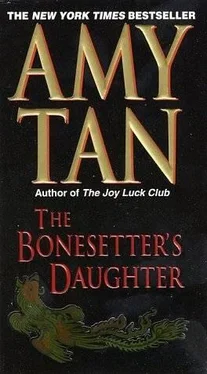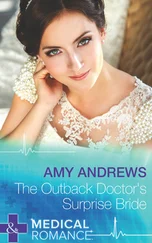The class started with what sounded like a cult incantation, followed by poses that seemed to be saluting a heathen god. "Urdhva Muka Svanasana! Adho Muka Svanasana!" Everyone except Ruth and Wendy knew the routines. Ruth followed along as if she were playing Simon Says. Every now and then the yoga teacher, a ropy-muscled woman, walked by and casually bent, tilted, or lifted a part of Ruth's body. I probably look like a torture victim, Ruth thought, or one of those freaks my mother saw in China, boneless beggar boys who twisted themselves up for the amusement of others. By this time she was perspiring heavily and had observed enough about the man next to her to be able to describe him to the police, if necessary. "The nude yoga rapist was five-eleven, maybe a hundred and sixty pounds. He had dark hair, large brown eyes and thick eyebrows, a neatly cropped beard and mustache. His fingernails were clean, perfectly trimmed."
He was also incredibly limber. He could wrap his ankles around his neck, balance like Baryshnikov. She, in comparison, looked like a woman getting a gynecological exam. A poor woman. She was wearing an old T-shirt and faded leggings with a hole in one knee. At least it was obvious she wasn't on the prowl, not like those who were wearing designer sports outfits and full makeup.
And then she noticed the man's ring, a thick band of hammered gold on his right hand, no ring on his left. Not all married men wore rings, of course, but a wedding band on the right hand was a dead giveaway, at least in San Francisco, that he was gay. Now that she thought about it, the signs were obvious: the neat beard, the trim torso, the graceful way he moved. She could relax. She watched the bearded man bend forward, grab the bottoms of his feet, and press his forehead to his knees. No straight man could do that. Ruth flopped over and dangled her hands to midcalf.
Toward the end of the class came the headstands. The novices moved to the wall, the competitive types rose immediately like sunflowers toward the noon sun. There was no more room at the wall, so Ruth simply sat on her mat. A moment later, she heard the bearded man speak: "Need some help? I can hold on to your ankles until you get balanced."
"Thanks, but I'll pass. I'm afraid I'd get a cerebral hemorrhage."
He smiled. "Do you always live in such a dangerous world?"
"Always. Life's more exciting that way."
"Well, the headstand is one of the most important postures you can do. Being upside down can turn your life around. It can make you happy."
"Really?"
"See? You're already laughing."
"You win," she said, placing the crown of her head on a folded blanket. "Hoist away."
Within the first week, Wendy was off yoga and onto a home gizmo that looked like a rickshaw with oars. Ruth continued with yoga three times a week. She had found a form of exercise that relaxed her. She especially liked the practice of staying focused, of eliminating everything from her mind except breath. And she liked Art, the bearded man. He was friendly and funny. They started going to a coffee shop around the corner after class.
Over decaf cappuccinos one evening, she learned that Art had grown up in New York, and had a doctorate in linguistics from UC Berkeley. "So what languages do you speak?" she asked.
"I'm not a true polyglot," he said. "Most linguists I know aren't. My actual language specialty at Berkeley was American Sign Language, ASL. I now work at the Center on Deafness at UCSF."
"You became an expert on silence?" she joked.
"I'm not an expert on anything. But I love language in all forms- sounds and words, facial expressions, hand gestures, body posture and its rhythms, what people mean but don't necessarily say with words. I've always loved words, the power of them."
"So what's your favorite word?"
"Hm, that's an excellent question." He fell quiet, stroking his beard in thought.
Ruth was thrilled. He was probably groping for a word that was arcane and multisyllabic, one of those crossword items that could be confirmed only in the Oxford English Dictionary.
"Vapors," he said at last.
"Vapors?" Ruth thought of chills and cold, mists and suicide ghosts. That was not a word she would have chosen.
"It appeals to all the senses," he explained. "It can be opaque but never solid. You can feel it, but it has no permanent shape. It might be hot or cold. Some vapors smell terrible, others quite wonderful. Some are dangerous, others are harmless. Some are brighter than others when burned, mercury versus sodium, for instance. Vapors can go up your nose with a sniff and permeate your lungs. And the sound of the word, how it forms on your lips, teeth, and tongue- vaporzzzzzz -it lilts up, then lingers and fades. It's perfectly matched to its meanings."
"It is," Ruth agreed. "Vaporzzzz," she echoed, savoring the buzz on her tongue.
"And then there's vapor pressure," Art continued, "and reaching that balance point between two states, one hundred degrees Celsius." Ruth nodded and gave him what she hoped was a look of intelligent concentration. She felt dull and badly educated. "One moment you have water," Art said, his hands forming undulating motions. "But under pressure from heat, it turns into steam." His fingers flittered upward.
Ruth nodded vigorously. Water to steam, that she understood, sort of. Her mother used to talk about fire and water combining to make steam, and steam looked harmless but could peel your skin right off. "Like yin and yang?" she ventured.
"Duality of nature. Exactly."
Ruth shrugged. She felt like a fraud.
"What about you?" he said. "What's your favorite word?"
She put on her idiot face. "Gosh oh golly, there are so many! Let's see. 'Vacation.' 'Jackpot.' Then there's 'free.' ' Sale.' 'Bargain.' You know, the usual."
He had laughed throughout, and she felt pleased. "Seriously," he said. "What?"
Seriously? She plucked at what surfaced in her mind, but they sounded trite: peace, love, happiness. And what would those words say about her? That she lacked those qualities? That she had no imagination? She considered saying onomatopoeia, a word that had enabled her to win a spelling bee in the fifth grade. But onomatopoeia was a jumble of syllables, not at all like the simple sounds it was supposed to represent. Crash, boom, bang.
"I don't have a favorite yet," she finally answered. "I guess I've been living off words for so long it's hard to think about them beyond what's utilitarian."
"What do you do?"
"I used to be in corporate communications. Then I started freelance editing, and a few years ago I took on more full-scale book collaboration, mostly inspirational and self-improvement books, better health, better sex, better soul, that kind of thing."
"You're a book doctor."
Ruth liked that he said that. Book doctor. She had never called herself that, nor had anyone else. Most people called her a ghostwriter-she hated the term. Her mother thought it meant that she could actually write to ghosts. "Yes," she told Art. "I suppose you could say that, book doctor. But I tend to think of myself as more of a translator, helping people transfer what's in their brain onto the blank page. Some books need more help than others."
"Have you ever wanted to write your own book?"
She hesitated. Of course she had. She wanted to write a novel in the style of Jane Austen, a book of manners about the upper class, a book that had nothing to do with her own life. Years before, she had dreamed of writing stories as a way to escape. She could revise her life and become someone else. She could be somewhere else. In her imagination she could change everything, herself, her mother, her past. But the idea of revising her life also frightened her, as if by imagination alone she were condemning what she did not like about herself or others. Writing what you wished was the most dangerous form of wishful thinking.
Читать дальше












